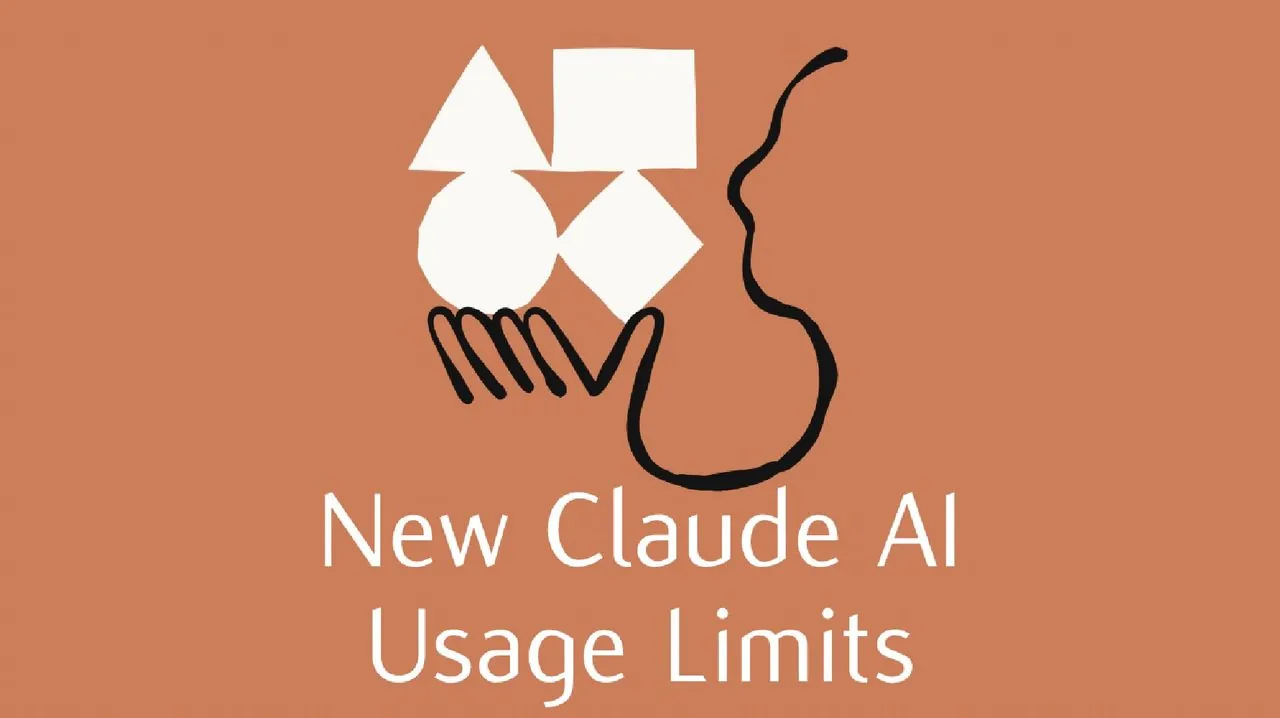
What if you woke up tomorrow to find your most trusted AI assistant suddenly limited in how much it could help you? For a small but significant group of users—just 5%—this scenario is now a reality. Anthropic’s recent introduction of new weekly usage limits for its Claude AI plans has sparked a wave of questions, concerns, and adaptations. While these changes aim to promote fairness and sustainability, they also raise critical challenges for heavy users who depend on Claude for complex workflows. If you’re someone who’s built your productivity or creativity around this tool, these updates could feel like a seismic shift, forcing you to rethink how you work with AI. The question is: are you in the 5%, and if so, how will you adapt?
In this overview of the new Claude usage limits, Ray Fernando breaks down what these new limits mean for users and explore the ripple effects they’re creating across the AI community. You’ll gain a clearer understanding of the updated caps, why they’ve been implemented, and how they might affect your workflows. Whether you’re a developer managing intricate codebases or a creator pushing the boundaries of AI-driven projects, this shift could redefine how you approach your work. We’ll also uncover strategies to optimize your usage, weigh the pros and cons of alternative solutions, and examine the broader implications for ethical AI practices. As you read on, consider how these changes might not just challenge your current processes but also inspire new ways to innovate within the constraints.
New Claude Usage Limits
TL;DR Key Takeaways :
Anthropic has introduced new weekly usage limits for Claude Pro and Max plans, effective August 28, 2025, to address policy violations and ensure sustainable resource management.
The new limits are tier-specific: Claude Sonnet 4 allows 240–480 hours per week, while Claude Opus 4 permits 24–40 hours per week, primarily affecting heavy users like developers.
Users exceeding limits can purchase additional usage at standard API rates, but this raises cost-effectiveness concerns for those with high computational demands.
The changes aim to prevent misuse, such as account sharing, unauthorized reselling, and 24/7 usage patterns, making sure fair resource distribution and platform sustainability.
Anthropic recommends monitoring token consumption and optimizing workflows to stay compliant, while heavy users may explore alternatives like open source AI models or workload delegation.
What Are the New Weekly Usage Limits?
The updated plans establish specific usage caps based on the service tier:
Pro Users
40-80 hours of Sonnet 4 through Claude Code per week
Max Plan ($100/month)
140-280 hours of Sonnet 4 per week
15-35 hours of Opus 4 per week
Max Plan ($200/month)
240-480 hours of Sonnet 4 per week
24-40 hours of Opus 4 per week
These limits primarily affect heavy users, such as developers managing extensive codebases or running multiple parallel sessions. If your usage patterns align with these scenarios, you may encounter these thresholds sooner than anticipated.
For users exceeding the limits, Anthropic provides the option to purchase additional usage at standard API rates. While this offers flexibility, it also raises questions about cost-effectiveness for those with high computational demands. Evaluating your workflows and resource allocation will be critical to navigating these changes efficiently.
Why Are These Changes Being Made?
The implementation of these limits reflects Anthropic’s commitment to addressing misuse and promoting fair usage across its platform. Common policy violations that prompted these changes include:
Sharing accounts among multiple users
Reselling AI services through unauthorized proxies
Engaging in continuous 24/7 usage patterns that strain system resources
By enforcing these restrictions, Anthropic aims to ensure equitable resource distribution and prevent exploitation of the service. If you’ve relied on practices such as shared accounts or other unauthorized methods to maximize access, adapting to these rules will be necessary to remain compliant. These measures also reflect a broader effort to maintain the platform’s integrity and sustainability as its user base continues to grow.
New Claude Rate Limits : Are You in the 5%?
Here are more detailed guides and articles that you may find helpful on Claude AI.
How to Monitor and Optimize Your Usage
To help users stay within the new limits, Anthropic recommends using token consumption monitoring tools such as `bunx CC usage` or `npx CC usage`. These tools provide real-time insights into your usage patterns, allowing you to:
Track token consumption: Gain a clear understanding of how resources are being used.
Identify inefficiencies: Pinpoint areas in your workflows where resource usage can be optimized.
Allocate resources effectively: Avoid exceeding limits by adjusting your processes proactively.
This is particularly valuable for developers managing complex projects or running resource-intensive tasks. Proactive monitoring not only helps you stay compliant but also ensures that your workflows remain uninterrupted under the new constraints.
Claude 7 Day Rate Limits Explained
Here are some tips to maximize your usage:
Start new conversations for each topic.
Batch related questions together.
Be mindful of attachment sizes as they impact usage limits.
Use projects to store documents in project knowledge instead of repeatedly uploading them.
Break large documents into smaller sections before uploading.
Ask Claude to summarize key points that you can paste into a new chat when needed.
Regularly review and remove unnecessary text and images from your project knowledge to keep your context focused and relevant.
Options for Heavy Users
For users who find the new limits restrictive, exploring alternative solutions may be necessary. Some viable options include:
Open source AI models: These models offer greater flexibility and control over resources. However, they may require additional setup, maintenance, and technical expertise to integrate into your workflows effectively.
Sub-agent delegation: Distributing workloads across multiple accounts or agents can help reduce the strain on individual accounts. This approach requires careful planning to ensure seamless integration with existing processes.
While these strategies can provide additional freedom, they also come with their own challenges. Evaluating the trade-offs between flexibility, cost, and complexity will be essential to determine the best path forward for your specific needs.
Community Feedback and Broader Implications
The announcement of these changes has sparked significant discussion within the developer community. Key concerns raised include:
Transparency: Users are calling for clearer guidelines on how usage is tracked and monitored.
Workflow impact: Many developers are concerned about how the new limits will affect their productivity and project timelines.
Cost implications: Heavy users worry about the financial burden of purchasing additional usage or transitioning to alternative solutions.
These changes have also prompted broader conversations about ethical AI usage and resource sustainability. Balancing productivity, cost, and fairness is a challenge that extends beyond individual users, highlighting the need for industry-wide solutions. As AI technologies continue to evolve, fostering open dialogue and collaboration within the community will be critical to addressing these challenges effectively.
Anthropic’s Perspective
From Anthropic’s viewpoint, these updates are a necessary step to ensure the long-term sustainability of their services. By addressing policy violations and promoting fair usage, the company aims to maintain high-quality service for the majority of users while managing the demands of a rapidly growing user base.
While the changes may pose challenges for heavy users, they reflect a broader commitment to ethical and responsible AI usage. Anthropic’s approach underscores the importance of balancing resource availability with equitable access, making sure that the platform remains viable for all users in the long term. Adapting to these updates will be essential for those seeking to maximize the benefits of Claude AI while aligning with the platform’s evolving policies.
Media Credit: Ray Fernando
Filed Under: AI, Top News
Latest Geeky Gadgets Deals
Disclosure: Some of our articles include affiliate links. If you buy something through one of these links, Geeky Gadgets may earn an affiliate commission. Learn about our Disclosure Policy.

